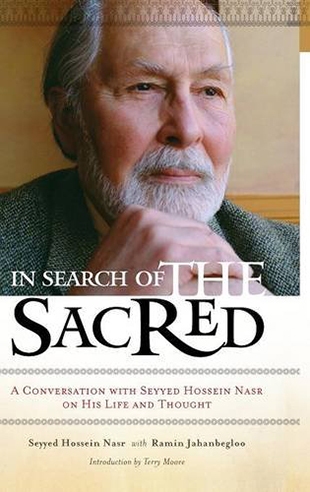Ramin Jahanbegloo: "I mean, they want spirituality without being spiritual."
Seyyed Hossein Nasr: "In a certain sense, yes. Well, they think that they are spiritual, but they want spirituality without the spiritual discipline that is needed to attain it. They cannot understand that if you want, let us say, to reach nirvana in Buddhism you have to spend thirty years in a Zen monastery doing zazen and praying every day, that you have to sit in zazen for four to eight hours every day remaining perfectly still; but they do not want to undergo that part of the discipline necessary to reach satori. They just want to have the satori. In the case of Sufism, it is the same, but it is not possible to practice Sufism outside the cadre of Islam and the rigorous practices of the disciplines of Sufism. If this is not done, so-called spirituality becomes just a fad. A lot of clever 'marketeers of spirituality' now find a big market for this kind of diluted Sufism, and so they are offering it to the public. They are attracting disciples who say that they are Sufis, but they are not even practicing Islam. They are not even performing their daily canonical prayers. 'Spiritually' has become unfortunately to a large extent a market activity and has become commercialized."
Living the Spiritual Life
R. J.: "Thomas Merton used to say, 'Spiritual life is not to be known or studied. It is to be lived,' and I have the impression that you spent more time in your life studying spirituality rather than living it directly."
S. H. N.: "No. That is totally false. I have been concerned with living the spiritual life since my twenties. My association with Sufism is not only in writing about it but more than anything else by living it, besides, of course, practicing Islam which I do most assiduously. I have never missed a prayer a single day, a single time since I was twenty years old except for when I was in the hospital having a heart operation. But even then, I made up the missed prayers later. Nor have I missed fasting except when I have had stomach problems or been incapacitated otherwise. As for specifically Sufi practices, I have engaged in invocation (dhikr) every day of my life during the past fifty years. So both on the level of the practice of the religion and also on the level of spiritual practice itself, I have been associated with the practice of Sufism since my early twenties. Of course that is a private aspect of my life about which I do not usually speak. That is why for those who have only read my books, it appears that I am more interested in the study of Sufism rather than in its practice. But since you asked this question openly, I must say that I agree completely with Thomas Merton as far as my own personal life is concerned.
"As for Merton, he was coming to Iran to see me, but he died a few weeks before coming, while he was in Southeast Asia. Yes, the spiritual life is not something you only study or write about; it is something that should be lived. The goal of all authentic spiritual writings is to lead people to the practice of the spiritual life. All these books that are written on this subject by authentic teachers have for their aim to lead a person to the point where he or she will begin to practice the spiritual life. So I am totally in agreement with Thomas Merton. Let me also again emphasize that it is only within Islam that Sufism can be practiced. The two have never been separated from each other in their reality and in fact are inwardly one, and certainly they have never been separated for me throughout my life."
Practicing Sufism
R. J.: "This is an individual practice, but I think that Sufism could also be practiced fully collectively."
S. H. N.: "No. The individual and collective practices of Sufism go together. When one enters a Sufi order, the most important part of it is the individual practice, which is based essentially upon the remembrance and invocation of God, which is called zekr in Persian, dhikr Allah in Arabic; and to do that one has to perform certain forms of invocation of various Names of God or litanies drawn from the Quran as well as practicing Islamic rites fully. The dhikr must also be accompanied by various forms of meditation. One of course must also conform to certain ethical norms. Now, all of these elements concern the individual. But in addition to them, Sufis meet often collectively in what is called majalis, which can range in their composition from a few to a very large number of disciples led by a spiritual teacher. The Sufi majlis is an important external support for the inner life and complements individual practice. It is not possible to be a serious practicing Sufi who wants to march on the path to God and just participate in the public gathering of Sufis. One also has to have interior spiritual practice. That is what is primary."
R. J.: "So you are a part of the gathering also, I mean, a group?"
S. H. N.: "It depends on what you mean. If you mean a Sufi order, yes."
